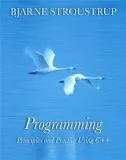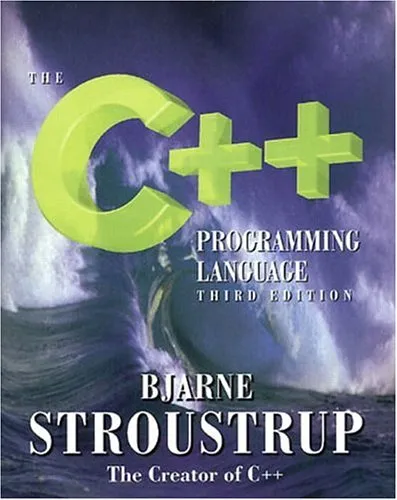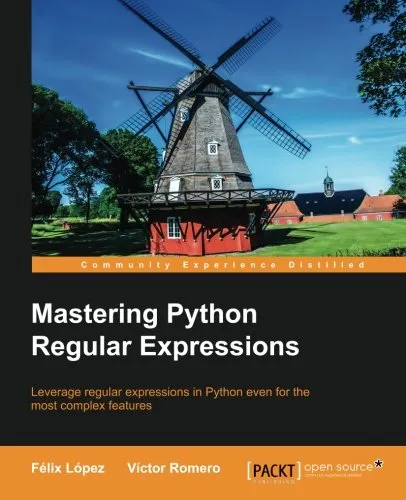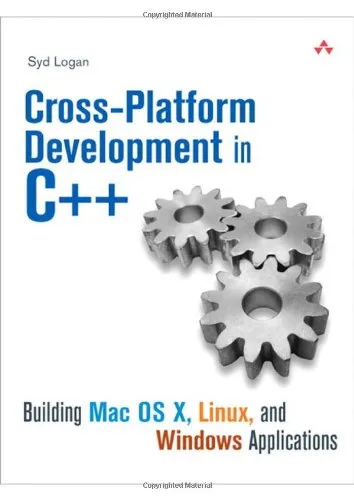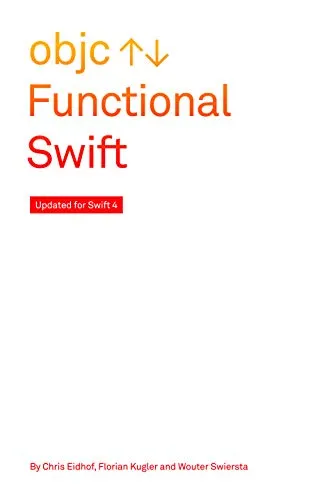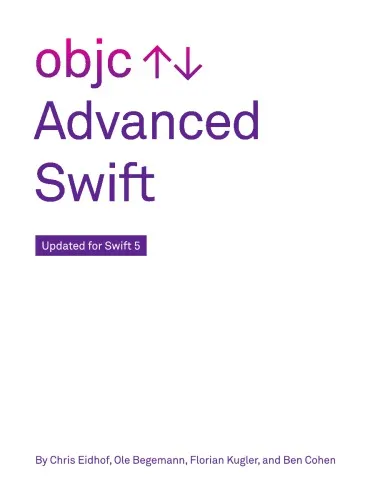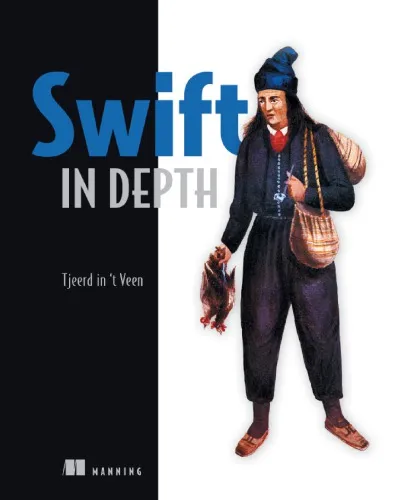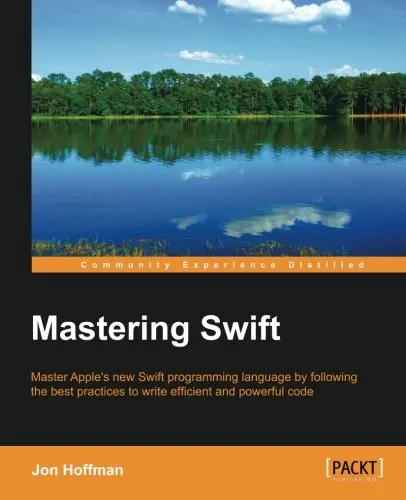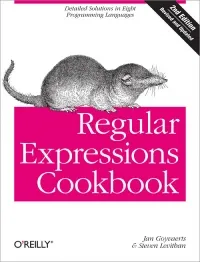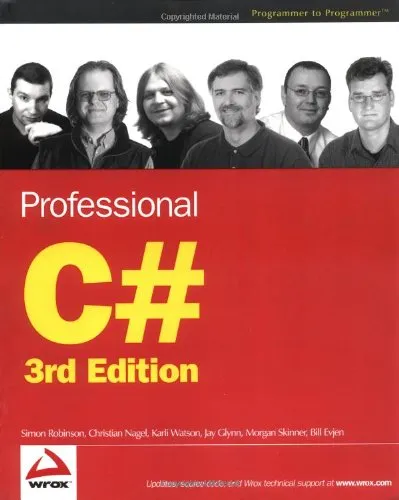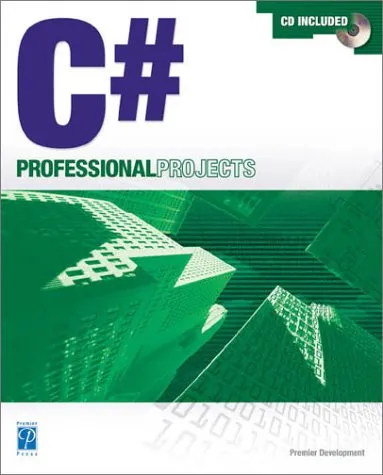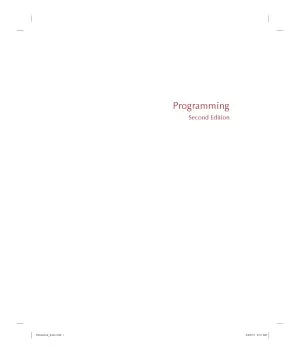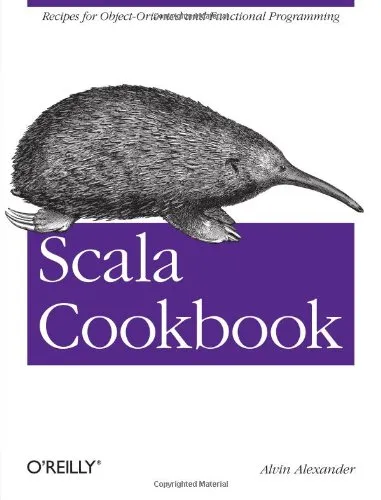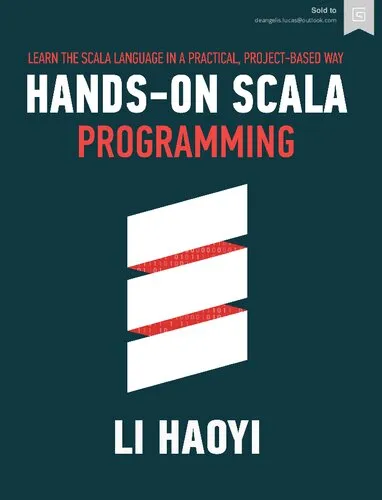Programming: Principles and Practice Using C++
4.7
Reviews from our users

You Can Ask your questions from this book's AI after Login
Each download or ask from book AI costs 2 points. To earn more free points, please visit the Points Guide Page and complete some valuable actions.Related Refrences:
Introduction to "Programming: Principles and Practice Using C++"
"Programming: Principles and Practice Using C++" by Bjarne Stroustrup is a comprehensive guide to learning modern programming concepts through the lens of C++. Widely recognized as the creator of the C++ programming language, Stroustrup brings decades of experience into crafting a book that not only teaches the syntax and features of C++, but also offers insights into the art of programming itself. This book caters to a wide audience—those with little to no programming experience, practitioners looking to revisit programming fundamentals, or programmers seeking to deepen their understanding of C++ for real-world applications.
With a unique approach that balances theoretical principles with plenty of hands-on exercises and practical examples, this book establishes a solid foundation in programming while gradually introducing the intricacies of C++. In this introduction, we will explore an in-depth summary of the book, key takeaways, some of its most quotable lines, and why "Programming: Principles and Practice Using C++" remains an essential resource for developers and learners alike.
Detailed Summary of the Book
The book is primarily structured for beginners, starting with an absolute basics-first approach. However, it evolves into deeper technical content that even seasoned professionals will find valuable. In the first chapters, Stroustrup introduces the foundational concepts of computing and programming, stressing the thought processes and problem-solving skills necessary to succeed in programming.
As the book progresses, readers are introduced to essential C++ concepts, such as variables, loops, functions, classes, templates, and exceptions. In addition to covering these technical concepts, the book works to instill good programming habits, such as writing clean, maintainable code and understanding the importance of debugging.
"Programming: Principles and Practice Using C++" goes beyond teaching syntax by presenting topics like object-oriented programming, software design, and programming paradigms in a real-world context. Chapters on standard libraries and modern C++ language features—such as smart pointers, lambdas, and concurrency support—prepare readers for building robust programs in practical scenarios. Furthermore, the book concludes with compelling discussions on large-scale development, best practices, and advanced topics, making it not just an introductory textbook but an ongoing resource for mastering C++.
Key Takeaways
- A solid understanding of programming fundamentals—from basic concepts to complex designs.
- An introduction to modern C++ programming, including features from the C++11, C++14, and later standards.
- Practical coding exercises and examples aimed at solving real-world problems.
- Guidance on writing clear, maintainable, and efficient code.
- Insights into the importance of debugging and safe coding practices.
- A structured framework for both beginners and experienced programmers to build their confidence and expertise.
Famous Quotes from the Book
"Programming is understanding."
"There are only two kinds of programming languages: those people always complain about and those nobody uses."
"Code is meant to be read by humans and only incidentally for computers to execute."
"The art of programming is not just about writing code; it is about thinking differently to solve problems."
Why This Book Matters
"Programming: Principles and Practice Using C++" is not just another book on programming or C++. It stands out as a thoughtful and accessible guide to computer science and software development. What makes this textbook invaluable is its focus on teaching readers how to think like a programmer—not just in C++, but in general. By blending theory with practical examples, Stroustrup has created a work that resonates with readers across all levels of expertise.
Furthermore, this book serves as an excellent introduction to modern C++ programming. It teaches the advanced concepts from newer standards of C++ progressively, making it a favored resource for beginners and advanced developers alike. Essential principles such as type safety, modularity, and clean code are central to the book, fostering not merely technical skills but also professionalism in software design and development.
Whether you're starting your programming journey or looking for an authoritative resource to refine your understanding of C++, "Programming: Principles and Practice Using C++" equips you with the necessary tools and knowledge to thrive in both academic and real-world coding environments. Its timeless lessons bring lasting value, ensuring that it will remain relevant for years to come.
Free Direct Download
You Can Download this book after Login
Accessing books through legal platforms and public libraries not only supports the rights of authors and publishers but also contributes to the sustainability of reading culture. Before downloading, please take a moment to consider these options.
Find this book on other platforms:
WorldCat helps you find books in libraries worldwide.
See ratings, reviews, and discussions on Goodreads.
Find and buy rare or used books on AbeBooks.
1722
بازدید4.7
امتیاز0
نظر98%
رضایتReviews:
4.7
Based on 0 users review
Questions & Answers
Ask questions about this book or help others by answering
No questions yet. Be the first to ask!
